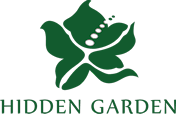by Rachel Thomas
All over the world there is discrimination against ancient traditions and a glamorization of the modern. No matter where your ancestors came from, if you go far enough back in time, they all practiced earth-based medicine. Some of us have lost track of our ancestral wellness tools and so we look to other cultures who have maintained their natural medicine wisdom over continuous generations. Many Indigenous elders have chosen to start teaching outsiders so that the human race can find it’s way back to its original earth-based practices.
One of our obstacles is that we are taught to believe what has been written down, lending validity to well-documented traditions such as yoga, acupuncture and Chinese Herbalism. Meanwhile the primarily oral traditions of Indigenous Americans and Africans are equally as rich as their Asian counterparts but struggling to survive in a modern world of books and technology.
Complicating the matter further, people who have suffered societal oppression have faced the marginalization and sometimes elimination of their health-promoting traditions. Ancestral ceremonies to heal the mind, create community and show respect for nature, have been especially targeted since colonization began 500 years ago. In many cases people have shared their plant wisdom with colonizers, by choice or coercion, receiving no recognition or even death in return. As of 2019, Indigenous people around the world are fighting for their lives to maintain their ancestral relationships with the lands that provide them their medicine.
It is time to change the tendency in modern societies to discriminate against the health-based wisdom of People of Color and Indigenous people. Here a few basic steps that we can follow in our daily lives to avoid contributing to the oppression of any culture’s wellness traditions.
- Be Open to Wisdom Sharers – Eurocentric education relies on finding an expert for information. Traditional education all over the world respects the wisdom of individuals, especially elders, to contribute to the wellness of the group. Learn to listen quietly to those who are generous enough to share their thoughts. Use your instincts when looking for a teacher instead of only judging a person on certificates or appearances.
- Be Humble – No matter how much you have learned about a certain culture’s medicine, if you can find a representative of that culture to share their wisdom with you, listen and learn with respect. Make sure that you have your teacher’s permission before passing on any of their knowledge.
- Be Real – When you go to your health food store and there are only a handful of books about Africana and Latino wellness traditions, find out why. Many of us have been programmed to value European and Asian based sciences over others, leading to a bias in whose cultural wisdom reaches “mainstream” alternative medicine.
- Be Proactive – Once you have recognized that there are cultures outside of your own whose medicinal traditions have been subjugated, try to educate yourself. Whenever possible, find out about other cultures from members of that culture or, in their absence, at least those who have been authorized by representatives of that culture.
- Be Responsible – If you are in a position to be supportive of a people whose ancestral medicine has been oppressed, you can offer your assistance directly to those people to see where you can best be of service. Find ways to help Indigenous and Africana communities to rescue and preserve their ancestral medicine by educating yourself and others and volunteering or donating to an organization. Avoid supporting anyone with discriminatory practices. Identify and support Indigenous and Africana teachers and businesses.
Image above shows traditional healers from Talamanca, Costa Rica, sharing their stories and struggles of practicing herbalism in a changing world. Taken by advocate herbalist Marc Williams. You can learn directly from these elders at Hidden Garden this Spring, during our Traditional Latino Medicine Intensive.







